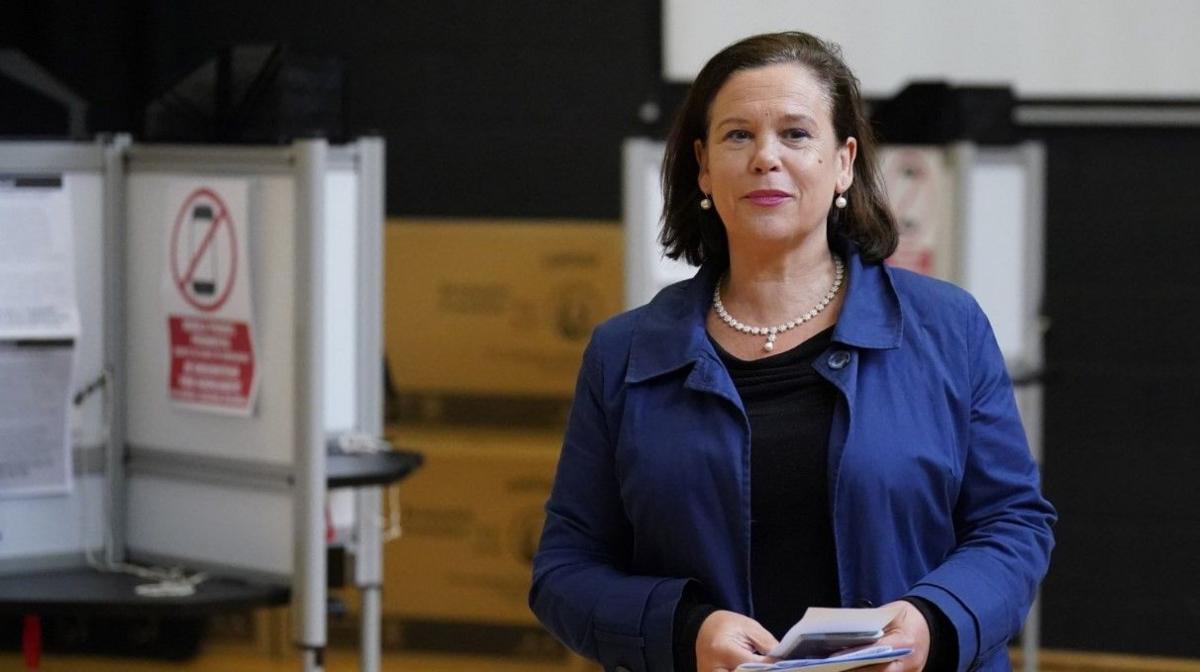What went wrong for Sinn Féin in Irish elections?
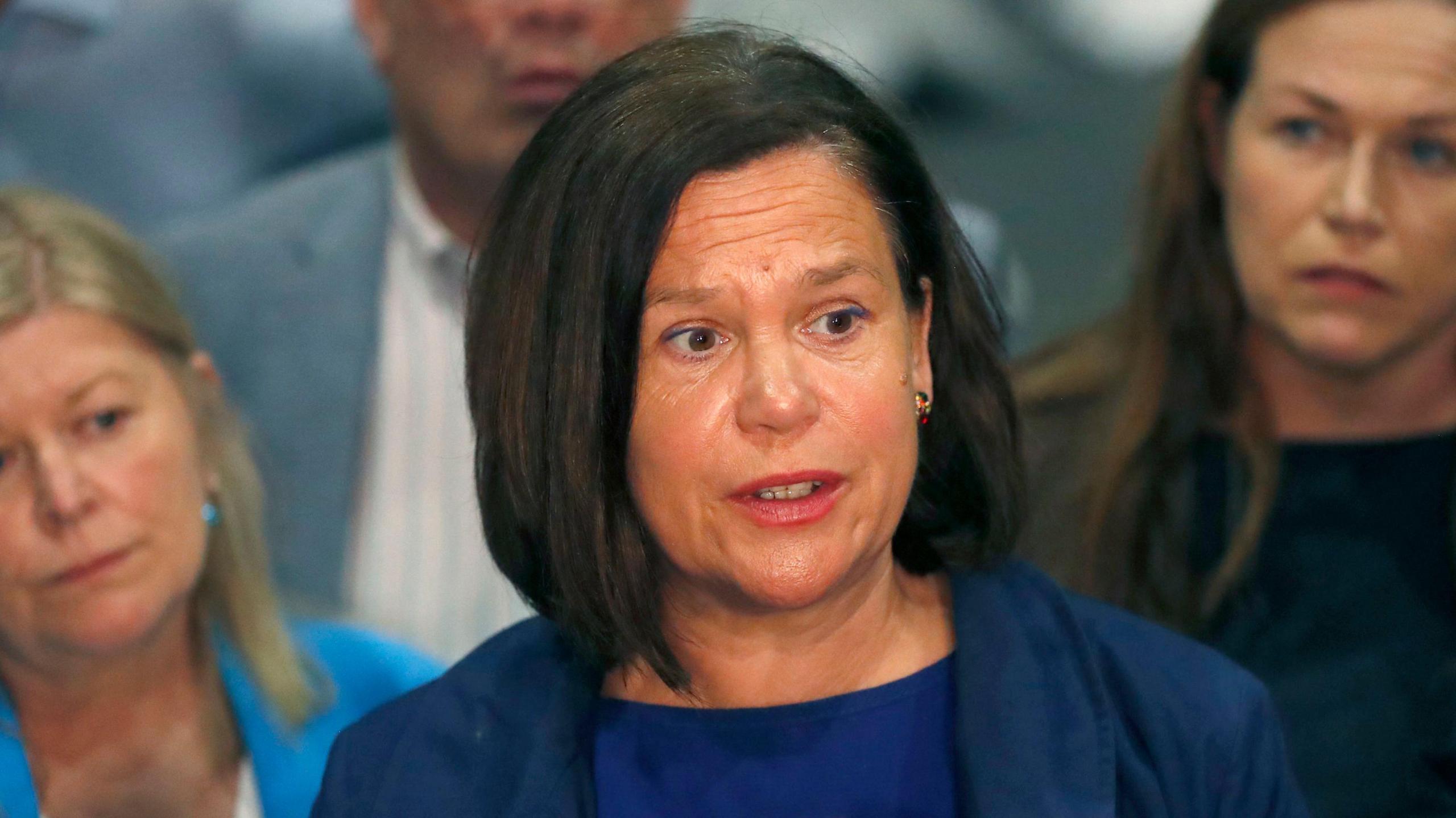
Mary Lou McDonald has led Sinn Féin for more than six years
- Published
What started out as the Sinn Féin message to voters has now become a promise to its own members.
“Change starts here” was the battle cry to the electorate by Mary Lou McDonald as she sought to send a message to the government parties
Now after a bruising election the Sinn Féin president has sought to reassure her party by using the same message - “change starts here”.
She has promised to “regroup” and learn lessons after a bitterly disappointing result.
The party had targeted up to 200 council seats including the 70 seats it lost in 2019.
But it is now on course to secure just over 100 seats.
European election
The party was also hoping to gain four extra MEPs across the Republic of Ireland's three constituencies
But it is likely to end up with just two more seats in the European Parliament.
As it stands, Sinn Féin is set to receive 12% of the vote.
That is far short of the 24% it secured in the 2020 general election.
Back then the party failed to fully cash in on its success by not running enough candidates
This time Sinn Féin over-compensated and fielded too many candidates.
As a result its vote was spread too thinly and the party struggled to retain council seats.
By contrast Fine Gael and Fianna Fáil are in a battle to be the largest party in local government with each securing almost 23% of the vote.
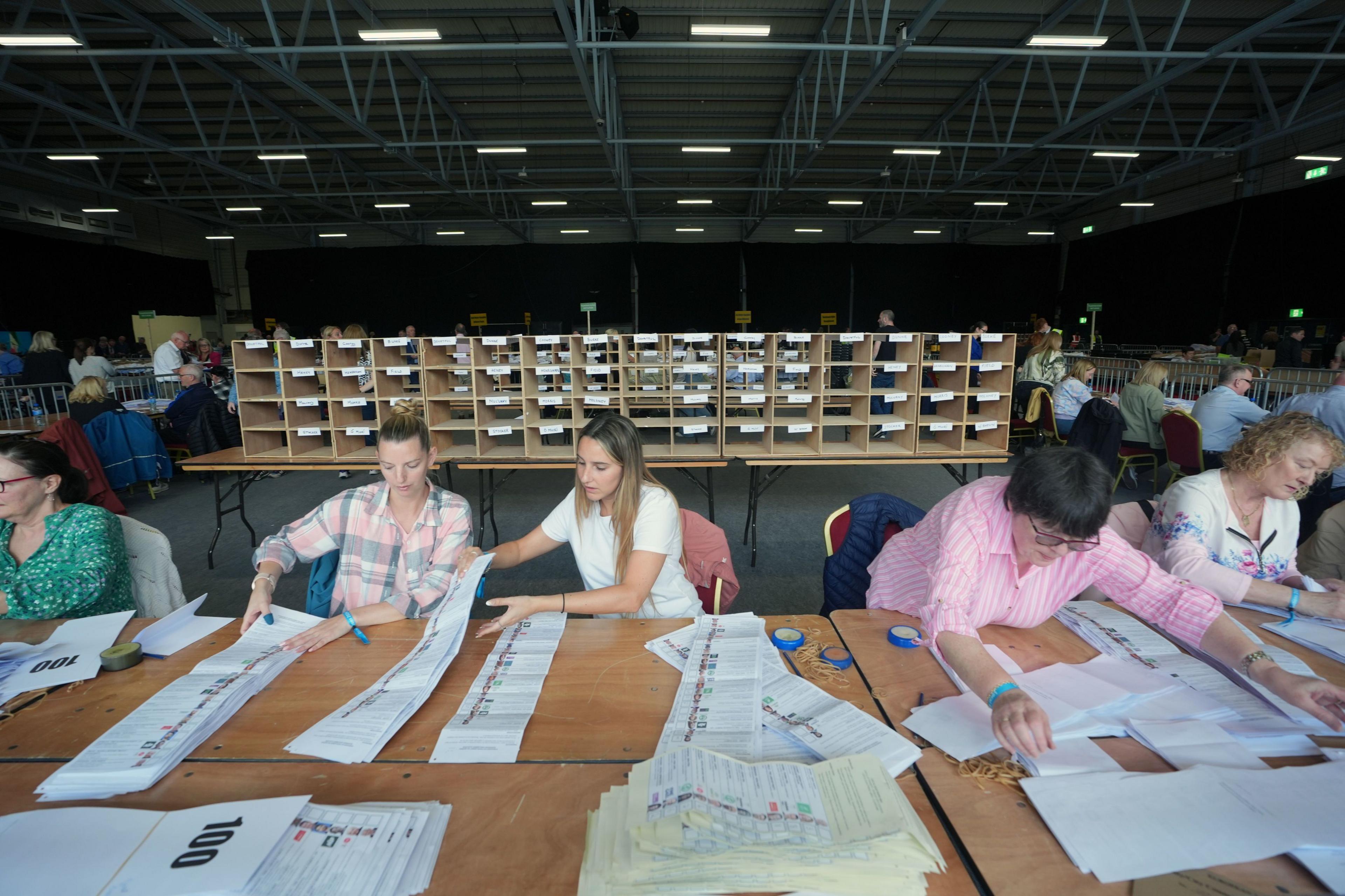
Irish voters went to the polls on the same day to elect local councillors and MEPs
Mary Lou McDonald's leadership
While that contest plays out the soul-searching has already started within Sinn Féin.
How could a party which was soaring in the polls, with support in the low 30s, now see its vote drop to 12%?
Questions are being asked about Ms McDonald's leadership.
This is the second election where the party strategy has failed - fielding too few candidates before and now too many.
Questions are also being asked about why the party's message failed to cut through.
One insider believes there needs to be a rethink around Sinn Féin’s migration policy.
“It was the key issue on the doorstep and yet our policy wasn’t crystal clear” he said.
“We argued for a fairer system with harder enforcement but that was lost on voters."
It is, though, a tough nut for Sinn Féin to crack.
Lurching to the right is not an option as it will alienate its core vote to the left.
A change in language might be an easier option.
Sinn Féin has also been accused of flip-flopping on some key policies.
Though some in the party will warn against a knee-jerk response to the polls.
They will argue unseating sitting councillors is always a challenge and will say the low turnout of 49% is also significant.
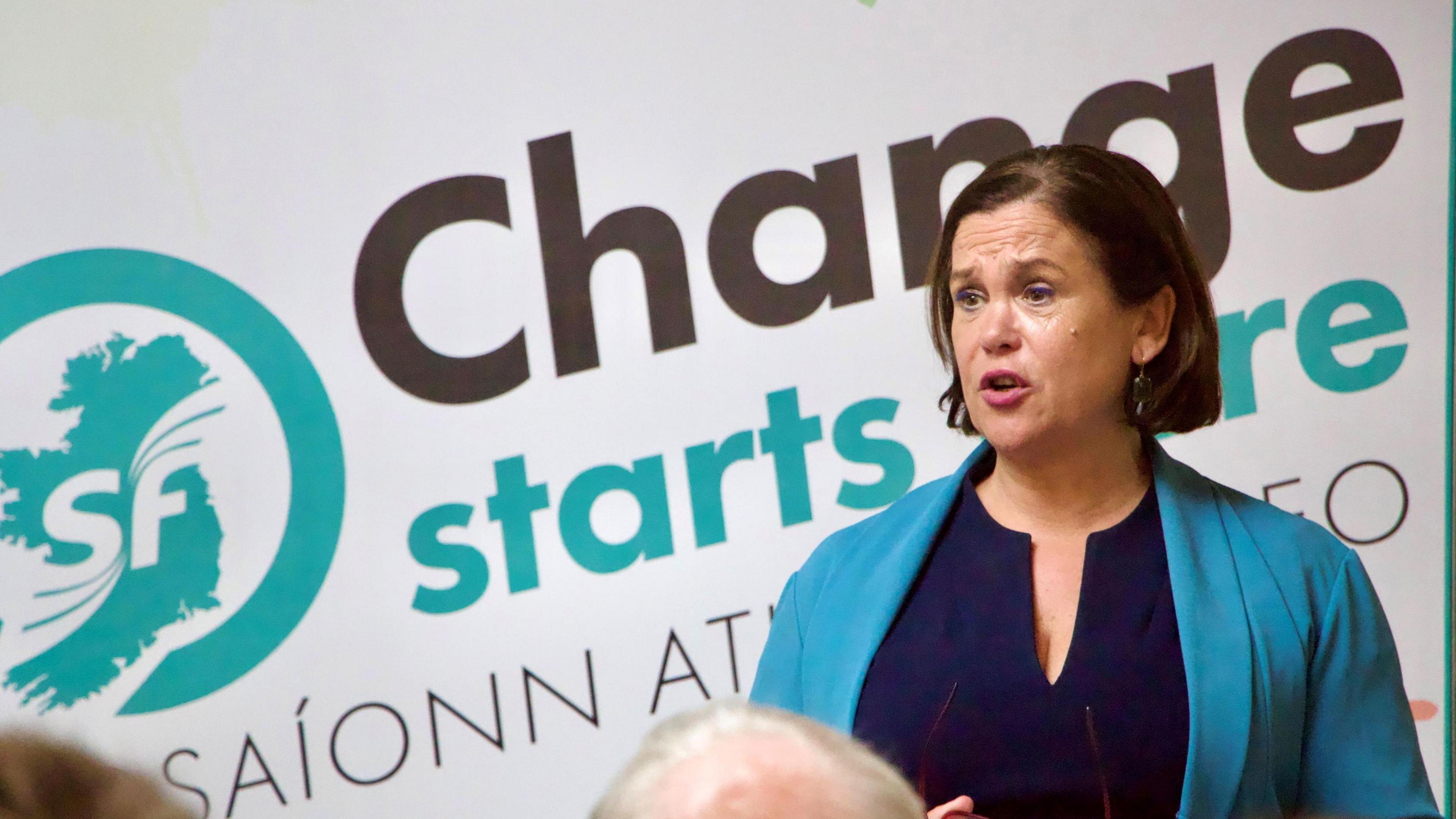
Sinn Féin's slogan during the election was "Change Starts Here"
Snap general election?
But changes are needed and the party may not get much time to make them.
With Fine Gael and Fianna Fáil returning a vote of about 23% each the government parties may be tempted to call a snap general election.
Though Taoiseach (Irish Prime Minister) Simon Harris has ruled that out, insisting there is more work to do, there is real possibility voters could be returning to the polls early in the autum.
A whole series of by-elections are expected in December to fill the seats vacated by TDs (members of the Irish Parliament) who get elected as MEPs.
To avoid the prospect of Sinn Féin regrouping before then, the government parties may go for a November election after the budget in October.
That means all parties will remain on an election footing.
But unlike the other parties, Sinn Féin now has to refocus for the Westminster election in July.
With just three weeks to run there is little time to dwell on the disappointment of the weekend results.
Lifting morale will be key for the quick turnaround as the party seeks to move on.
Related topics
- Published10 June 2024
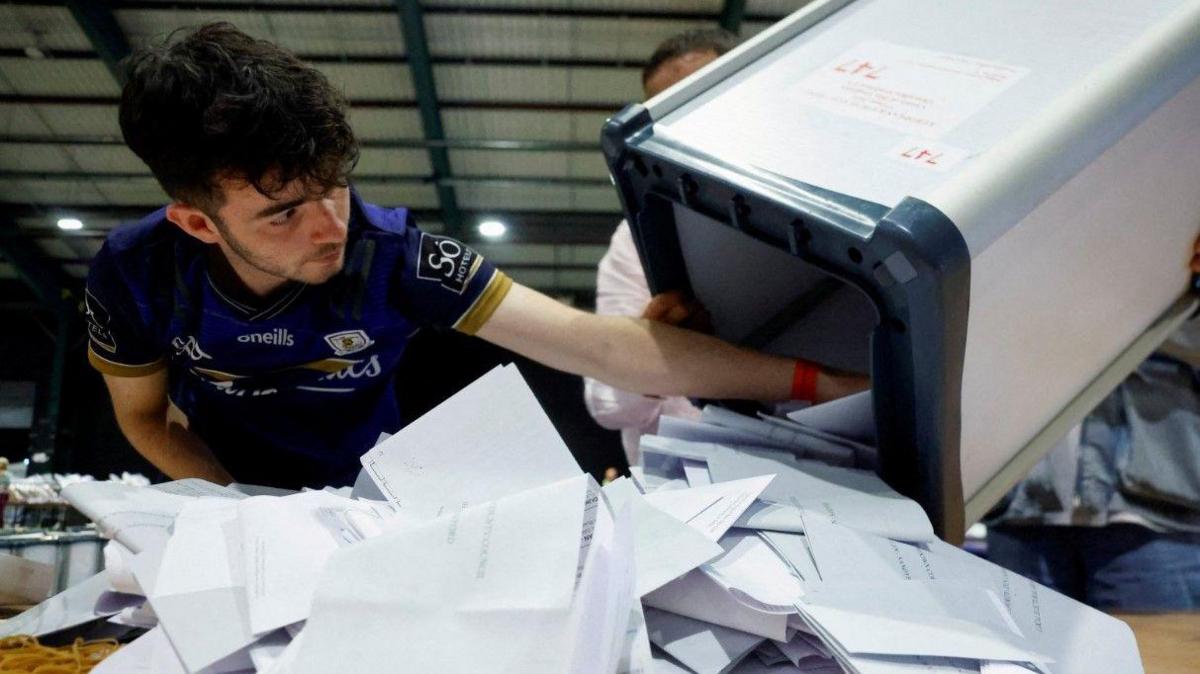
- Published9 June 2024
